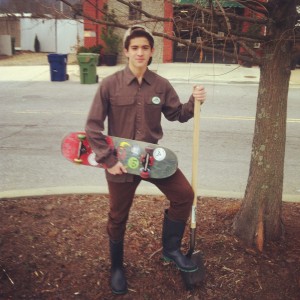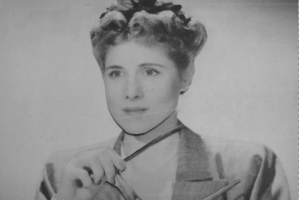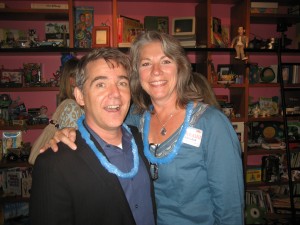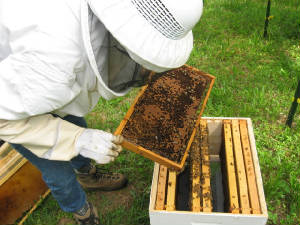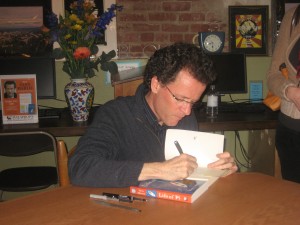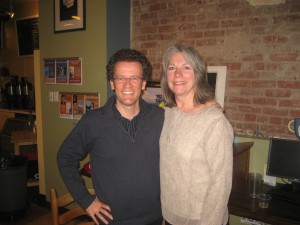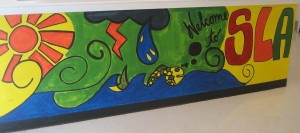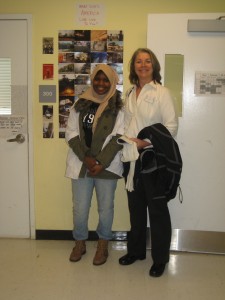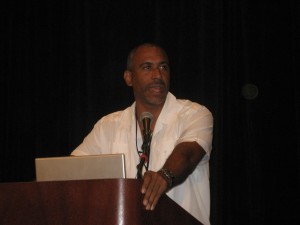Guest Speakers
Every Tuesday I try to have a speaker from the community talk to my students. This week, we had Eric from Asheville Greenworks and he brought along his intern from Peru. The talk was inspiring. Eric’s previous employment includes 12 years in the video game industry, and part ownership in a solar energy business. Exciting stuff. He left those businesses to do something that could make a difference in his community. He took a risk on an organization that did great things but needed some business savvy, and it payed off. Asheville Greenworks is now the largest volunteer organization in our town.
This post is about the intern. Koki is a 17-year-old young man from Peru. He was spending his summer in Asheville trying his hand at an environmental project. You see December is summer in Peru. He gave up the chance to spend two months on the beach with his friends to help out here in Asheville. His work here starting up a recycling and composting program in elementary schools has changed his life. He saw the power of a small group of people reaching out to make a difference and his talk to my students spoke of his desire to go back to Peru and do the same thing. It was powerful.
The best ripple so far has not been the comments from our discussion board (I will share some below) wonderful as they are. The power of this experience rippled out from one class to another until three days later a student wanted to share a photo that her friend found of the town that Koki lived in in Peru. She said it really was amazing and asked if I wanted to see it. They shared it on facebook of course. The brown cliffs of his town made a connection. Koki had spoken of his uncle’s desire to help his home regain the name of “the green coast” by planting ground cover on the cliffs. My students found the town, looked at the coast, and shared in the desire to help it regain vegetation.
Teaching is often about curriculum, assessments, outcomes, and accountability. That which cannot be measured is the impact of experiences that will help change a future. My students now want to volunteer more, they were inspired by Koki’s hard work and dream, feel motivated to work a bit harder, and sought knowledge of a distant shore on their own. Scheduling guest speakers is another task, a task that does not actually fall neatly into a core standard. It is well worth the time and effort.
Some student reflections:
“Eric and Koki were so amazing to meet. Each inspired me to do more than I ever planned on, in more than just community service and graduation project. While I am not a strong environmentalist, I am excited about doing something that will change the world and make an impact.”
“The most important piece of what Eric and Koki said was that internships are the best way to learn about jobs you are interested in. Before committing to and investing in college, you need to know if you will be able to enjoy the career you plan on studying.”
“Koki was very funny and he reminded me of how I used to be, he has that spark and desire, hopefully he doesn’t lose it and will stay the way he is. He’s so young but already making a life changing project.”
“Eric and Koki made me want to become an environmentalist because their presentation was so good! I would like to volunteer with Asheville Greenworks sometime when I have time. Koki is so young yet doing so many great things and it is such an inspiration.”
“Koki especially has been an inspiration to me. Giving up a summer in Peru to come here and do the dirty work? Wow! That is amazing. It made me realize that we all have dreams. Each and every one of us has 24 hours a day to accomplish that dream. So if we aren’t the ones that using it wisely, then whose fault is it? Koki sacrificed two months to follow his dream, therefore, we can do that!”
There were so many wonderful connections made. Every student made a unique observation and connected what they heard to their own lives. Bringing in members of the community is vital for helping our students broaden their focus. If you are a guest speaker, mentor, or volunteer – thank you.
